- Home
- Simon Winchester
The Fracture Zone Page 8
The Fracture Zone Read online
Page 8
Almost outside her house we picked up three more hitchhikers, a trio of teenage girls who were going dancing. They sat crammed in the back of the car and sang the one song they knew in English. It was by Patsy Cline: “Crazy.” And they sang it very well.
All that remained now was to make it through the Krajina and venture into the “land of the Osmanlees.” I wondered if ours might be like Alexander Kinglake’s crossing a century and a half before. He had been ferried over the very same river that we would have to cross, the Sava. And for him it was at a perilous time, too—for while beyond the Sava these days there is violence and revenge, beyond the river in 1844 the problem was the plague:
When all was in order for our departure, we walked down to the precincts of the quarantine establishment, and there awaited the “compromised” officer of the Austrian government, whose duty it is to superintend the passage of the frontier, and who for that purpose lives in a state of perpetual excommunication. The boats with their “compromised” rowers were also in readiness.
After coming into contact with any creature or thing belonging to the Ottoman empire, it would be impossible for us to return to the Austrian territory without undergoing an imprisonment of fourteen days in the Lazaretto. We felt, therefore, that before we committed ourselves, it was important to take care that none of the arrangements necessary for the journey had been forgotten; and in our anxiety to avoid such a misfortune we managed the work of departure from Semlin with nearly as much solemnity as if we had been departing this life. Some obliging persons from whom we had received civilities during our short stay in the place, came down to say their farewells at the river’s side; and now, as we stood with them at the distance of three or four yards from the “compromised” officer, they asked if we were perfectly certain that we had wound up all our affairs in Christendom, and whether we had no parting requests to make. We repeated the caution to our servants, and took anxious thought lest by any possibility we might be cut off from some cherished object of affection:—were they quite sure than nothing had been forgotten—that there was no fragrant dressing-case with its gold-compelling letters of credit from which we might be parting for ever? No—every one of our treasures lay safely stowed in the boat, and we—we were ready to follow. Now there we shook hands with our Semlin friends, and they immediately retreated for three or four paces, so as to leave us in the centre of a space between them and the “compromised” officer; the latter then advanced, and asking once more if we had done with the civilized world, held forth his hand—I met it with mine, and there was an end to Christendom for many a day to come.
I was not entirely certain just where to cross the Sava; when I took advice it was from the strangest source. It turned out that a former Australian prime minister, Malcolm Fraser, was staying in the room next to mine at the Esplanade. He told me, when we had a drink that evening, that he was trying (in vain as it turned out) to secure the release of a pair of Australian aid workers who had been arrested in Serbia and charged with spying. His mission not unnaturally fascinated Australia, and there were four journalists from Sydney and Melbourne in the hotel, covering the story. One of them turned out to be a man with whom I had shared a house in Washington a quarter of a century before, and whom I had not seen since. We spent our last evening in Christendom with him, and he assured us that the most prudent place to cross the Sava was via a half-ruined bridge a hundred miles east of Zagreb, at a place called Gradiska.
And so the next morning we drove there, and under a blazing sun crossed the iron Bailey bridge, our progress monitored by the crew of Hungarian army sappers who had helped to build it. It took half an hour of paperwork and fee paying and delay, but by lunch we were properly stamped—in Cyrillic, naturally—into what was notionally the Republic of Bosnia and Herzegovina, BiH for short, or the Federation.
Except not quite. We had in fact come across the border, across the Sava River, not directly into the Federation, but into that part of Bosnia that is almost wholly occupied by Serbs, rather than by the Croats or Bosnian Muslims—Slavs all, it has to be remembered—for whom the Federation is their supposed home. We were driving, and would be driving for a couple of hours more, through that half-legal entity that was won out of the cliff-hanging negotiations at Wright-Patterson Air Force Base in Dayton, Ohio, and is known as the Republika Srpska—a place where no one, quite frankly, is very welcome. Certainly not two foreigners driving a Fiat that sported license plates showing it was registered in Croatia. It was perhaps not wholly surprising, then, that like Alexander Kinglake all those years before, we passed under the barrels of the sentries’ guns with just a frisson of apprehension.
4
Looking for a Sarajevo Rose
I WAS TOLD THAT I should see a Sarajevo rose. I had heard a lot about them—not exactly what they were, mind you, but that they were well worth seeing. I asked the Rose with whom I was traveling: She had heard of them, too, but wasn’t quite sure either.
Rose knew a good deal about Sarajevo, and like so many who had lived in Europe during its years of siege and near destruction, had followed the downward spiral of the city’s fortunes with a grim fascination. In the United States there wasn’t the same degree of interest, and I was less prepared than was Rose for what lay ahead. I had heard several people say that after its five years of ruination and despair the city was now in an optimistic mood, and that it thought of itself as the fastest-changing place on earth. On the other hand, some Cassandras I had spoken to back in Vienna and Zagreb said this was fanciful nonsense, and that the city would eventually turn out to be much the same as it always was—a cauldron of all Balkan races and religions but one perpetually on the verge of boiling over. Just see a Sarajevo rose, one of them said, and then you’ll have a better idea of whether or not things will ever really change.
In ordinary circumstances it should be about a three-hour drive to the Bosnian capital from the Sava River. But neither Sarajevo nor the Bosnian Republic have known ordinary circumstances for a long time now, and I supposed it would take rather longer to get there. Especially in a car registered in Croatia. (Though one of the Serb border guards who was in a friendly mood said that, since my car was registered in the Istrian seaport of Rijeka, and there was little historic animosity between the average Serb and the average Istrian, I would quite probably “get away with it.”)
The first few miles proved amiable enough. For maybe two or three miles, close to the frontier, there were some ruined houses, relics of the shelling from the Croatian guns. But when we turned into the Taxi-Bar café that the frontier sentries had recommended, it had been newly rebuilt and was filled with free-spending patrons, and no one, not even a group of four enormous and bare-chested Serbian men who sat at the next table, appeared unduly interested in my foreign car. I ordered beer and cevapcici, a dish of lamb and beef rolls, with freshly chopped chives and red-hot peppers, and which owes much to Bosnia’s Turkish culinary influence.
We ordered coffee. “Bosnian?” asked the waitress, matter-of-factly, and when we agreed brought us what back home we always called Turkish coffee, two tiny cups on a brass stand, and poured the thick brown liquid from a dzezva, a Turkish brass coffee jug. As we paid the bill—in German marks, the most widely accepted currency in the Balkans—one of the men from the next table came across and promptly turned the coffee cup over, dumping out the remaining coffee, claiming loudly to be able to read our futures from the grounds left behind.
“I see, I forecast, you will have good time here,” he said, in fractured English. His companions, contentedly drunk, giggled and gave the two-finger-and-thumb Serb salute—a gesture I was to see in much more threatening circumstances some weeks ahead.
We sped as fast as was legal through the ugly crossroads town of Banja Luka, forty miles from the frontier. There had once been more than a dozen mosques in the town, but so militant were the Serbs who flocked here during the war—as refugees from the Krajina in Croatia, and from those parts of Bosnia that were awarded to t
he Federation—that every one of them had been knocked down, including the famous Ferhadija Mosque, which was built in the sixteenth century with the ransom money paid to recover a kidnapped Austrian count. These days the town is the epicenter of nationalist Serbdom for what is called the RS—the Republika Srpska—and for those who care to demonize the Serbs, not a place in which to linger. But I got lost, and everyone I stopped to ask—each of whom glanced automatically at my license plates to guess at my persuasions—was helpful, and displayed not a trace of hostility. That was to come a good while later.
To get to Sarajevo there was a choice: either the main road due south, or a smaller country road that wound up and over a range of hills. I had an army map that is customarily given to drivers of SFOR, the thirty-thousand-strong NATO Stabilization Force that tries to keep the Bosnian peace: It marked the country lane in red, as what armies call a Theater-Controlled Route, and even gave it a code-name, albeit an unlovely one: CLOG.* And sure enough, below the main sign that said SARAJEVO was a small yellow tac-sign (a tactical sign) with CLOG in a military stencil. We swung left onto the convoy route and climbed up into the high country.
Here at last was the geology of the Balkans writ large. The hills reared and plunged like the backs of a million mustangs. Villages were tucked away in the deep and forested folds of the ranges. There were waterfalls and tiny lakes, meadows and cliffs and precipitous ridges. There were dozens of churches too, each with the cross of the Eastern Orthodox faith, the tilted crosspiece at the base reminding worshipers that one of the men crucified beside Christ was destined for heaven, the other not. No Catholic spires here, or minarets. We were deep inside the Serbian Republic, in a landscape that, however cruelly, had been cleansed of all alien callings, and that, like it or not, basked in the temporary peace of its newfound purity.
And then we heard a faraway deep-throated rumble, and high above us were the contrails again: a big bomber this time, an American B-52 dispatched from its forward base in East Anglia, with four fighters from a U.S. base in Italy escorting it, on the way to drop hot iron onto Serbia.
As we came ever closer to what the SFOR map defined with a thick black line and a set of warning symbols as the “inter-entity boundary,” there was ruin again—mile after mile of shattered houses, the burned-out shells of what had been homes and farms and barns. The daubings once more—“Cetniki brigade”—showed who was responsible. These had been the houses of Muslims, burned out and cleared by Serbs to make this region pure. By now I was becoming inured to it, but Rose fell silent, stunned.
Whole village house rows were empty—lines upon lines of houses destroyed, not randomly but with concentrated deliberation. I think that is what dismayed us most. This was not a countryside devastated by conventional fighting, in which an army had smashed its way across an urban landscape and laid waste anything in its path. This was selective, spiteful fighting, in which soldiers and civilians with pure hatred in their hearts set about the destruction of personal enemies, the settling of old scores. This was evidence of an abscesslike welling up of years of poison, and its sudden release, with dreadful, impassioned result.
The only houses that were untouched were those once owned by Serb farmers, back in those times when villagers ignored their differences—such as they were: Everyone here was a Slav, it needs to be said again and again—and just got on with the harvesting or the sowing or the raising of barns. But even these intact houses were empty, their owners quite understandably opting not to live on in a village of ghosts. That was one difference about the desertion: The Serbian houses had their windows boarded up; the Muslim houses had no windows.
A Bailey bridge—built by Royal Engineers a couple of years before—took us across a rushing gray river that formed the entity frontier itself, the ruins of the old bridge standing like broken teeth beside it. And then a few more miles of wreckage, before we rounded a bend, passed a Turkish army jeep and a white Land Rover, both with SFOR stenciled on their sides, and found ourselves in a settlement of modern houses, all intact. There was a café, and we bought two beers. The owner was a Muslim. There was a wall calendar in Arabic. “Yes, Muslim but Bosniak,” he grinned. “I drink beer. Is okay.”
Suddenly there came a furious barking from below the lip of a hill beside the bar, and four breathless men in army fatigues clambered up beside us. They each had a huge dog, restrained by heavy chain leashes, and each had a hunting rifle slung over his shoulder. “Pigs!” one shouted, “Wild pigs!” pointing down to the bottom of the valley. “And we have a wolf. Caught him yesterday.”
Rose and I slithered down the grassy bank to a hastily built barbed-wire cage. Inside, and chained by a back foot, was a gray wolf with yellow eyes and teeth an inch long. It jumped up wildly when it spied us, and began a deep growling, like far-off thunder. But when we knelt down next to its cage it fell mute, and sat gazing up at me with what seemed an expression of terrible misery, caught and pinioned like this away from its forest lair. The men who had caught it waved their guns and cheered. “Serbian wolf!” one shouted. And they laughed drunkenly, kicked their dogs up into a cage behind the car, and, waving their guns out of the windows, skidded off down the mountainside.
There was an increasing number of minarets now, as we passed town after bustling Federation town. We stopped for a while in Travnik, a town with a classical Balkan look—squeezed and squashed by geology and topography into an inconveniently narrow valley, hemmed in by steep hills and connected to the outside only by winding switchback roads. My principal Balkan hero, the Nobel Prize-winner Ivo Andric had been born here: He wrote the novel that I have long thought of as the most important Balkan book, The Bridge on the Drina; a book that, though it appears to offer high regard for the Serb, was written by what Ivo Andric was invariably forgotten to be, a Croat.* There was a museum to his memory, but as so often happens it was locked, and a bored attendant who might well have been schooled in China offered only the memorably Oriental excuse, heard without cease in the People’s Republic: “The man with the key is not here.”
The imam of the local mosque was more welcoming, and though almost totally deaf spoke enough German to express his relief that his and six other mosques had all escaped the wartime shelling. He let me wander around inside where it was cool, and I padded across the soft, thick Turkish carpets and counted two dozen sets of prayer beads and as many copies of the Koran, open at different pages. When I emerged into the light the mullah was surrounded by elderly women in headscarves, and was eating happily from a bag of fries and ketchup that one of the ladies had brought him.
Dusk was gathering when, finally, we came to the junction beside the infamous airport and the even more infamous Mount Igman and, after turning left, saw the twinkling lights and familiar ruins of the city of Sarajevo itself. Soon there were trolley tracks and then, on our right, suddenly rearing out of the earth like some devastated nuclear sarcophagus, the twisted girders and shattered curved gray cement walls and floors of what had once been the towers of the newspaper office, Oslobodenje, which more than almost any other ruin seemed to symbolize the awfulness of what had happened to this town.
That is not to say it is the most infamous ruin. The terrible damage done to the graceful and domed old Hapsburg National Library, which used to be the town hall, stands as memorial to a particularly dire moment—the summer evening when, six months after the siege began in early 1992, a torrent of shells poured down on the building and set fire to it, and the ashes of a million burning books rained down on those who tried in vain to save it. The barbarity of that event remains indelibly etched in the minds of all who stayed during the war or who have since returned—along, to a greater or less degree, with the countless other moments of terror and misery that left 10,615 people dead, of whom 1,601 were children. The siege of Sarajevo went on for 1,395 days—longer than the siege of Stalingrad; longer, it is said, than any siege in modern history. And its evidence, physical, psychological, spiritual, is inescapable. It confronts you, assaults
you, in every view, with every conversation. It hangs in the air, a deathly mustiness, sour and rotten.
We stayed at the Holiday Inn, which had been built for the 1984 Olympics and which famously stayed open throughout the siege, and in which—since it overlooked a snipers’ alley, with the ruins of the assembly building between it and the Miljacka River and the Serb front line—the costliest rooms were those that did not have a view. The city outside was busy: Shoppers passed back and forth, the trolleys rattled past every few moments, cars went by at normal speed. No one ran, no one scuttled. There was a small café close by where people sat out in the sunshine, without an apparent care in the world. But when, as often happened, there was a sudden sound—a screech of tires, a car backfire, a shout—everyone looked up; there was a collective wince of memory, a skittishness born of five years of hard experience.
Outwardly there were many reassuring signs that matters might be returning to normal. But then again, perhaps not. There were four houses of worship within a few hundred yards of the hotel, which before the war had bustled with congregations and showed just how well the fourth faiths, Eastern Orthodox, Roman Catholic, Muslim, and Jew, had managed to coexist. But now the Orthodox church seemed closed, and there appeared to be little business in the synagogue. Only the Catholic Croats and the Muslims, for whom the Bosnian Federation had been established, seemed active.
Much else was moribund as well. On my first morning I went to the railway station. There had been a time when Sarajevo was a lively railway town, the station itself the pride of the Balkans. Ten years ago you could go by rail from Sarajevo down to Ploce on the Adriatic coast, or all the way up to Zagreb, or across to Belgrade, or Budapest or Athens. The latest Cook’s Continental suggested there might still be some services, a fifty-minute shuttle to Visoko and Zenica—but it warned otherwise that “many long-distance services have been suspended,” and even such details as were published were “from unofficial sources and therefore subject to confirmation.”

 The Surgeon of Crowthorne
The Surgeon of Crowthorne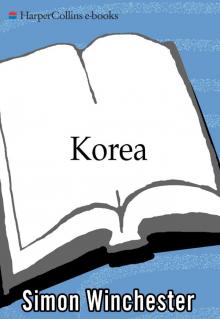 Korea: A Walk Through the Land of Miracles
Korea: A Walk Through the Land of Miracles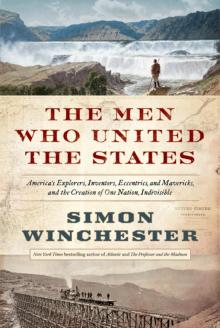 The Men Who United the States: America's Explorers
The Men Who United the States: America's Explorers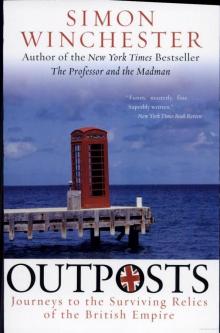 Outposts: Journeys to the Surviving Relics of the British Empire
Outposts: Journeys to the Surviving Relics of the British Empire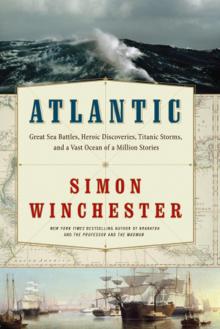 Atlantic: Great Sea Battles, Heroic Discoveries, Titanic Storms
Atlantic: Great Sea Battles, Heroic Discoveries, Titanic Storms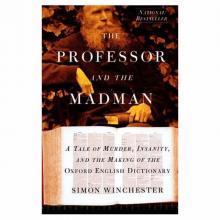 The Professor and the Madman: A Tale of Murder, Insanity
The Professor and the Madman: A Tale of Murder, Insanity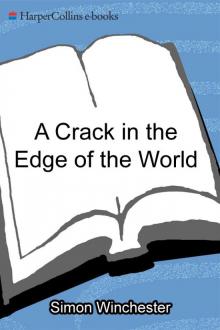 A Crack in the Edge of the World
A Crack in the Edge of the World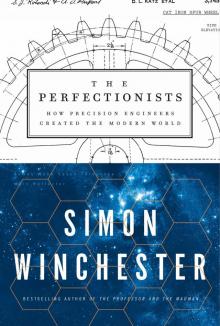 The Perfectionists: How Precision Engineers Created the Modern World
The Perfectionists: How Precision Engineers Created the Modern World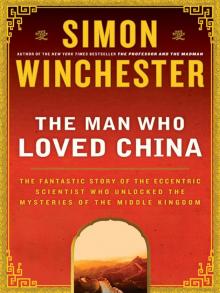 The Man Who Loved China: The Fantastic Story of the Eccentric Scientist
The Man Who Loved China: The Fantastic Story of the Eccentric Scientist The River at the Center of the World: A Journey Up the Yangtze
The River at the Center of the World: A Journey Up the Yangtze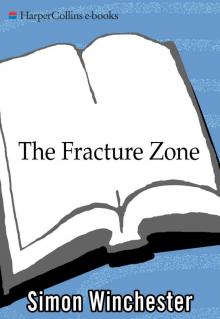 The Fracture Zone: My Return to the Balkans
The Fracture Zone: My Return to the Balkans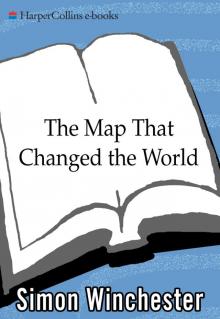 The Map That Changed the World
The Map That Changed the World Krakatoa: The Day the World Exploded
Krakatoa: The Day the World Exploded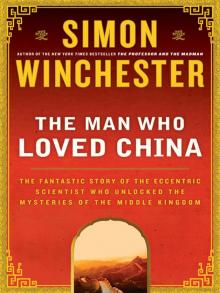 The Man Who Loved China
The Man Who Loved China The River at the Centre of the World
The River at the Centre of the World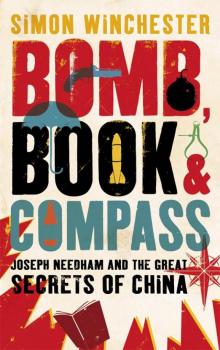 Bomb, Book and Compass
Bomb, Book and Compass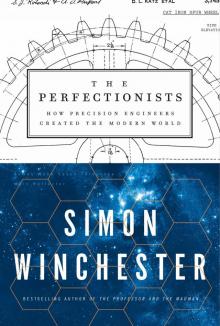 The Perfectionists
The Perfectionists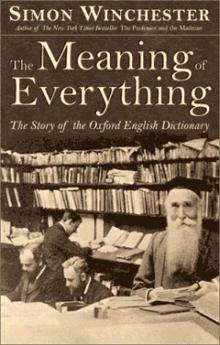 The Meaning of Everything
The Meaning of Everything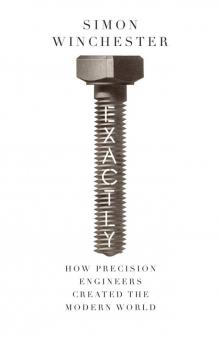 Exactly
Exactly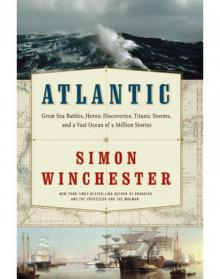 Atlantic
Atlantic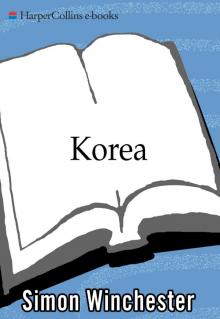 Korea
Korea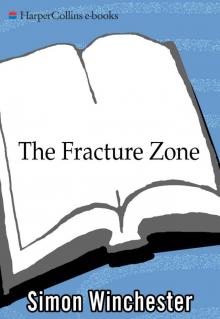 The Fracture Zone
The Fracture Zone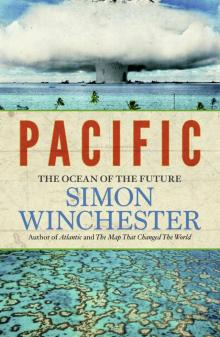 Pacific
Pacific Krakatoa
Krakatoa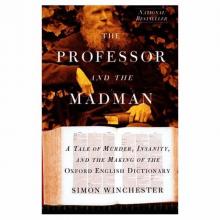 The Professor and the Madman
The Professor and the Madman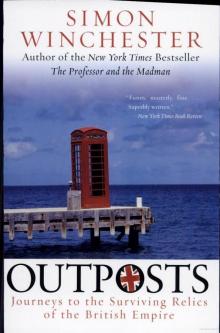 Outposts
Outposts